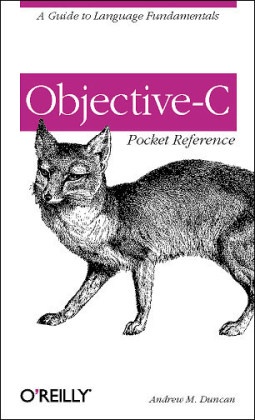Read more
Informationen zum Autor Andrew M. Duncan started programming in FORTRAN on Control Data 6600 hardware in 1974, and a quarter century later progressed to Mac OS X. He holds a Bachelor's degree in electrical engineering from the California Institute of Technology, and a Masters in mathematics from the University of California at Santa Cruz. He is now on leave from doctoral work on compilers at UC Santa Barbara. He currently works at Expertcity, designing the core class libraries. Klappentext Objective-C is an exciting and dynamic approach to C-based object-oriented programming; it's the approach adopted by Apple as the foundation for programming under Mac OS X! a Unix-based operating system gaining wide acceptance among programmers and other technologists. Objective-C is easy to learn and has a simple elegance that is a welcome breath of fresh air after the abstruse and confusing C++. To help you master the fundamentals of this language! you'll want to keep the "Objective-C Pocket Reference close at hand. This small book contains a wealth of valuable information to speed you over the learning curve. In this pocket reference! author Andrew Duncan provides a quick and concise introduction to Objective-C for the experienced programmer. In addition to covering the essentials of Objective-C syntax! Andrew also covers important faces of the language such as memory management! the Objective-C runtime! dynamic loading! distributed objects! and exception handling. Zusammenfassung This guide provides a quick and concise introduction to Onjective-C for programmers already familiar with either C or C++! and will continue to serve as a handy reference even after the language is mastered. Inhaltsverzeichnis Chapter 1: Objective-C Pocket Reference; 1.1 Introduction; 1.2 What Is Objective-C?; 1.3 Elements of the Language; 1.4 Compiler and Preprocessor Directives; 1.5 Compiler Flags; 1.6 Remote Messaging; 1.7 Object Lifecycle; 1.8 Runtime Errors; 1.9 Runtime Environment; 1.10 Root Classes; 1.11 Forwarding Messages; 1.12 Memory Management; 1.13 Archiving Objects; 1.14 Key-Value Coding; 1.15 Optimizing Method Calls; 1.16 Objective-C++; 1.17 Objective-C Resources;...

